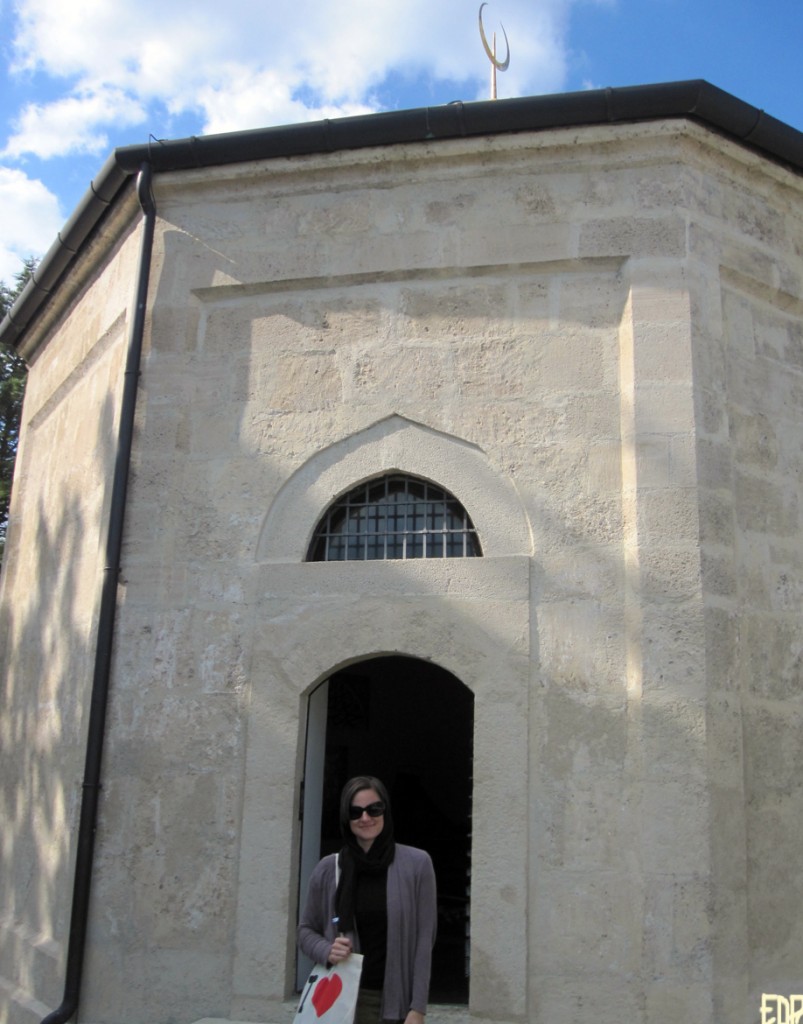
Exploring Sufism in Hungary (Photo: Emily O'Dell)
Gul Baba (whose name means “Father of Roses”) was a beloved companion of Sultan Suleiman the Magnificent. Though the circumstances of Gul Baba’s death are open to debate, he died in 1541 after the Ottoman capture of Buda. His tomb is one of the few traces left of the Ottoman presence in Budapest today. Little did I know when I arrived in Budapest from Bratislava how difficult it would be to find Gul Baba’s shrine. But getting lost on the way, it turned out, was part of the fun.
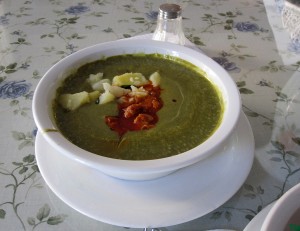
Home-style cooking (Photo: Emily O'Dell)
After fueling up on green pea soup, I followed the directions of the cafe owners–who told me that the shrine of this beloved Sufi “patron saint of the city” wasn’t far away. When I reached the base of Mecset utca (Mosque Street) on Rose Hill, I took a deep breath before starting the steep climb to see the sacred Sufi shrine of Budapest.
As I hiked up the cobblestone hill–past elegant villas with roses tumbling from their windowsills–there wasn’t a single tourist in sight. When I arrived at the small courtyard containing his stone shrine and a small rose garden, the only one there to greet me was a statue of Gul Baba himself–with a rose tucked inside his turban. Nearby the shrine, I spotted “Gul Baba Cafe.”
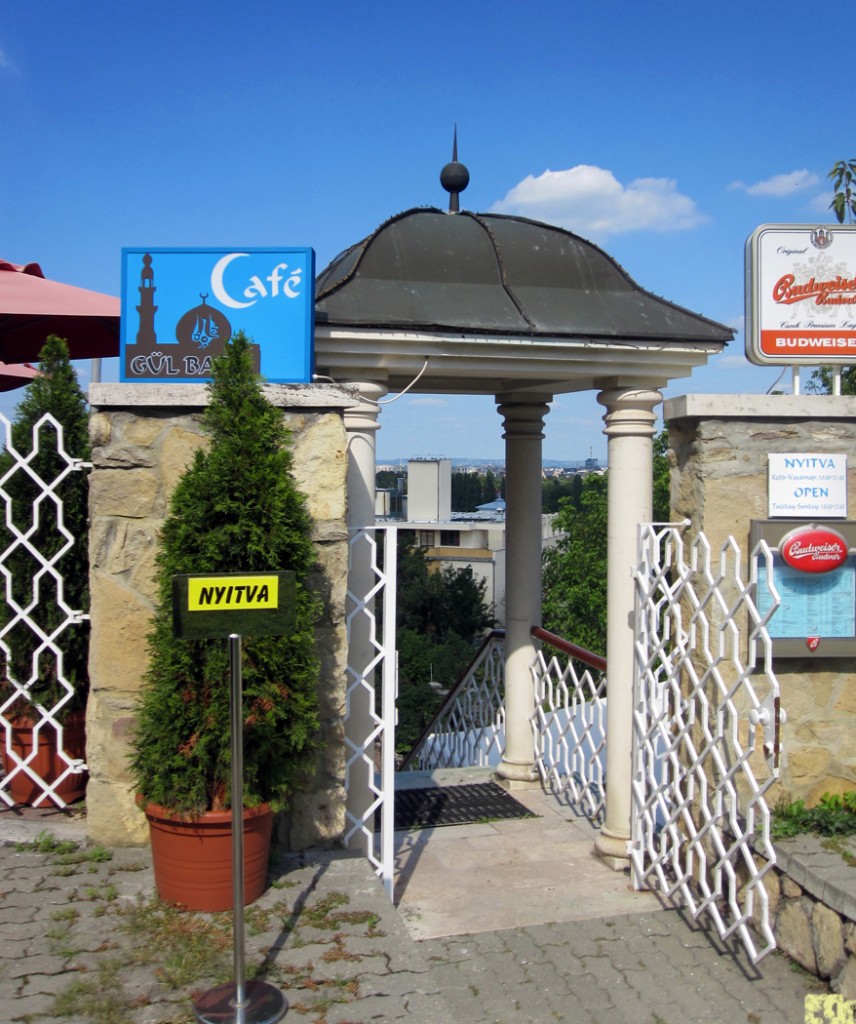
Sufi shrine cafe (Photo: Emily O'Dell)
As I took off my shoes to step inside Gul Baba’s silent octagonal shrine (türbe), I slowly inhaled the sweet fragrance saturating the room from fresh roses placed in his tomb. The colorful prayer rugs and Arabic calligraphy reminded me of the countless Sufi shrines I had visited in Turkey.
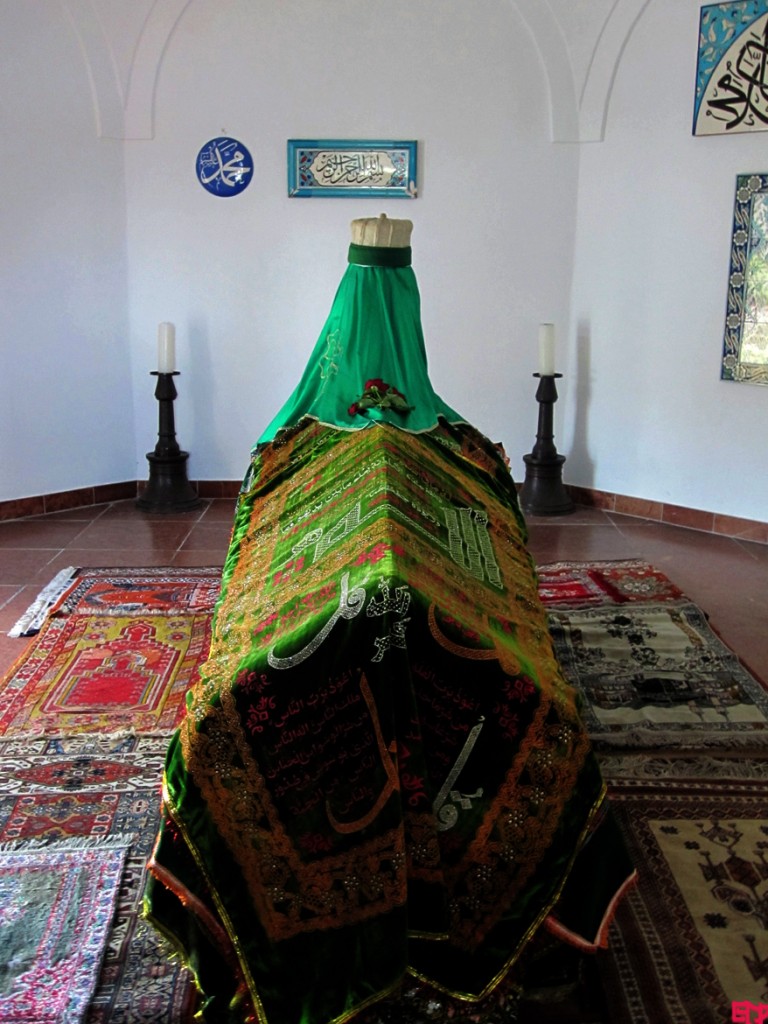
Inside Gul Baba's shrine (Photo: Emily O'Dell)
While I was taking photos, a man who was speaking Hungarian and wearing a knitted skullcap entered the shrine with his friend to offer a prayer. After he took some photographs of his own, he approached me to ask if I was from Turkey. Surprised that I was from America, he invited me to join the Hungarian Islamic Community that night for a Ramadan feast–since he was the imam of the local mosque. As he told me about the practice of Islam and Sufism in Hungary, I learned that a number of Hungarian Muslims are involved in charity work around the world–including Sudan.
Peaceful memories forged from my exploration of Islamic history and practice in Budapest contrast drastically with the images on my screen today of Muslim refugees in Hungary being treated worse than prisoners. Having spent so much time with young Syrian refugees on the streets and in the refugee camps of Lebanon, I’m disturbed to see traumatized Syrian refugees having to contend with the violence of Islamophobia, xenophobia, and racism in Europe. I can only hope that the refugees in Hungary find safe passage soon to a new chapter in their lives so they can begin to heal not only from the physical and mental wounds of war, but also the emotional wounds of their inhumane treatment in Europe.
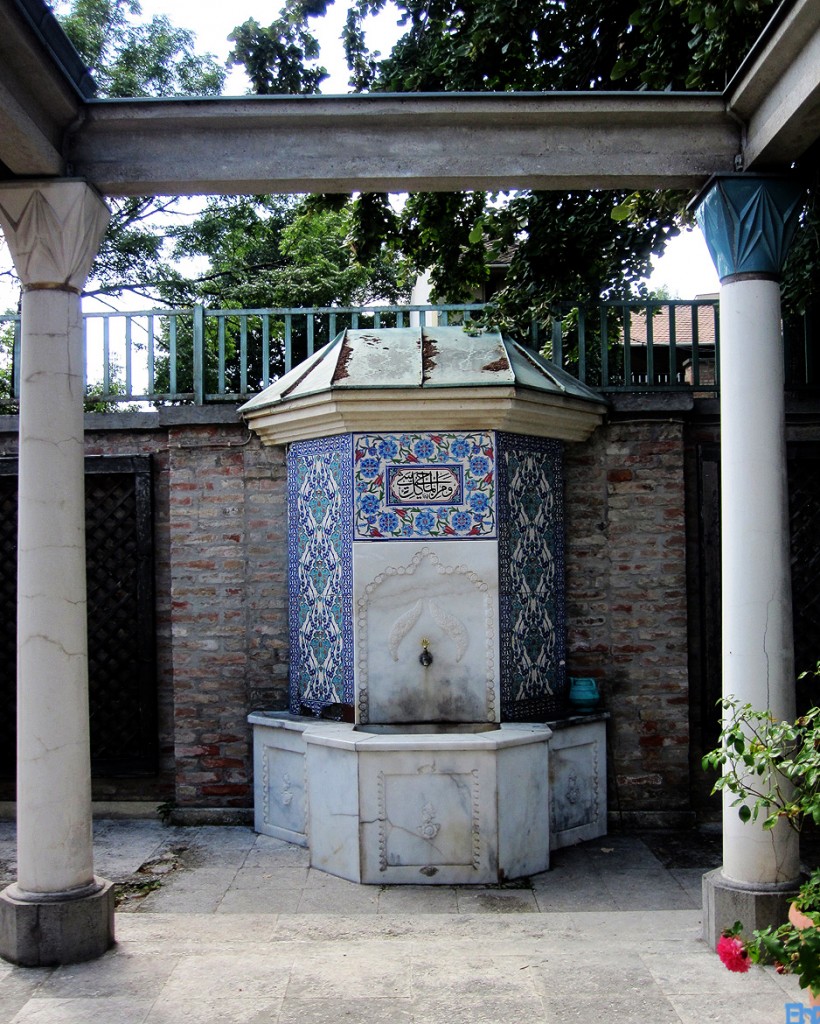
Fountain in Gul Baba's rose garden (Photo: Emily O'Dell)